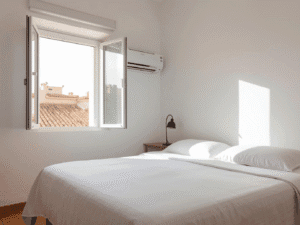Guide for Owners: Legal & Tax Requirements for Holiday Apartments in Málaga
If you own a holiday rental apartment in Málaga, or you’re planning to turn your home into a short-term accommodation, it’s essential to know the legal and tax requirements for holiday rental apartments in Málaga. Complying with the regulations protects you from penalties, allows you to operate smoothly, and boosts your property’s reputation. In this practical guide we cover everything you need to know: licensing and physical conditions, taxes, legal obligations and risks.
1. Regulatory framework: which laws apply
The Tourism Law of Andalusia regulates tourist accommodations, including holiday rentals (viviendas con fines turísticos, VFT) and tourist apartments.
Decreto 31/2024, dated 29 January: updated Andalusian regulation for VFTs. Sets specific requirements for area, amenities, equipment, registration.
Málaga municipal urban planning regulations, including the PGOU 2011, and current city ordinances. Some neighborhoods have restrictions or bans on new tourist apartments.

2. Specific legal requirements in Málaga
Occupancy license / authorizing title for use as tourist accommodation.
Registration with the Andalusia Tourism Registry (or relevant provincial tourism register).
Physical/structural conditions of the apartment:
Minimum built surface per guest (at least 14 m² per guest, plus total minimum surface as required by law)
Ventilation direct to exterior or courtyards, window darkening options.
Fully furnished, bed and bath linen provided, essential equipment for immediate use.
Mandatory services: guest books / complaint forms; tourist information; contact phone for guests and neighbors; cleaning at entry and exit.
Local and urban norms: apartments must have independent access and services when required; new tourist apartments may be banned in some saturated zones. Málaga has introduced a license moratorium for new tourist housing in many areas.
3. Tax & fiscal obligations
Taxation: holiday rentals are considered lease for non-housing use. If you provide hotel-like services, it might be taxed as an economic activity.
Declare your income: include your holiday-rental earnings in your IRPF (or applicable tax) returns.
IAE (Business Activities Tax): applicable if the activity is considered beyond a simple rental (i.e., you offer services, or meet classification thresholds).
Informative declarations: obligations for intermediaries to supply information; shifts in model requirements.
4. Penalties & risks for non-compliance
Fines and sanctions from municipal or regional authorities for operating without the proper license, or in zones where new tourist apartments are prohibited.
Removal of listings from booking platforms, reputational damage.
Issues with homeowner associations (community of owners): Statutes may restrict or disallow tourist rentals; conflicts pueden generar sanciones o judicializaciones.
5. Recommended steps to ensure compliance
Check urban-planning status: sanctioned zones, PGOU compatibility, usos permitidos, ordenanzas locales.
Secure the occupancy license or authorizing title.
Register with the Andalucía Tourism Registry.
Ensure physical compliance: surfaces, ventilation, furnishings, services.
Set up your fiscal structure: tax registration, IAE if needed, income tax, bookkeeping.
Maintain ongoing compliance: periodically revisar la normativa, seguros, servicios de atención al cliente, prevención de riesgos.

Ensuring that your holiday rental apartment in Málaga meets the legal and tax requirements is not just a regulatory necessity—it’s a way to build trust, avoid fines, and ensure long-term success. With the right license, registration, physical standards, and fiscal compliance, your property can operate safely and profitably. At Sunstay Rentals, we’re ready to help you with every legal, normativa y fiscal step so you can concentrarte en dar la mejor experiencia al huésped.









